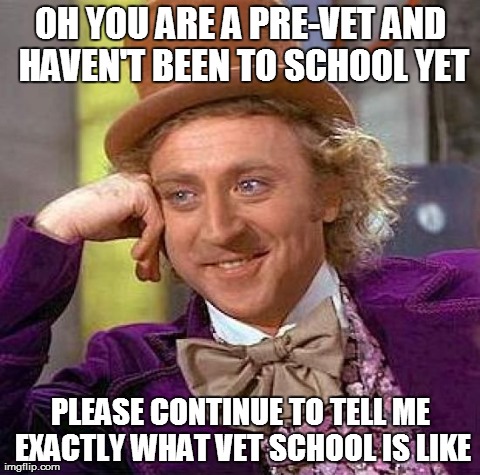I understand why that stigma is there, but I think that, like with most things in life, it needs to be taken in moderation.
Let's just even take undergrad GPA for example. I also have heard of employers "discriminating" against people with high GPAs because they're worried about social skills. I guess it's just a little frustrating because I have had it drummed into my head since I was a young'in that good grades do nothing more and nothing less than simply give you options. Let's take my brother for example. He had a mathematical major at a school that is well-known for being an excellent program in his major. Just when he got too deep to go back, he realized he hated it. I remember at some point him trying to convince us all that he could just graduate with a 2.0 because he's "for sure not going back to school and employers will never look at his grades". But he got his butt in gear and graduated with a 3.3. Sure enough, he had a series of jobs where nobody ever cared about his GPA, just work experience, people skills, etc. But then when he decided "oh wait j/k I want to get my master's in a different mathematical subject", sure enough that GPA came roaring back, this time to help him get into a highly competitive master's program.
I guess what I'm saying is (and I know I'm preaching to the choir here somewhat) we try to get the best grades we can simply because it tends to give us the best options in life. More likely to get into vet school in the first place, more likely, if we're pursuing residencies, to get the one we prefer. I, like redhead, am interested in a residency and so grades are a high focus for me right now. Does that mean I'm antisocial? No. Does that mean I can't work well in a professional setting? No way. And, even more crucially, does this mean I'm going to have a meltdown if I just can't cut it and get the grades I need for a residency? No! I'll figure something else out. I just want the option to be there, if there's any way it can be.
I think it comes down to the fact that you can't take shortcuts when evaluating people's applications for any major position, student or employee. Just as I think certain GPA cutoffs for vet school are not right because they don't consider the whole applicant, GPA cutoffs the other way (not taking people with high GPAs automatically) for jobs also do applicants and employers a disservice. Any employer who decides an applicant is not suitable for the sole reason of his/her GPA being "too high", IMO, is being short-sighted. Not that high GPA people deserve a higher chance than low GPA people when applying for the position, just it's important to remember that there are many reasons for people to get high GPAs, and not all of them translate poorly into a professional atmosphere.

